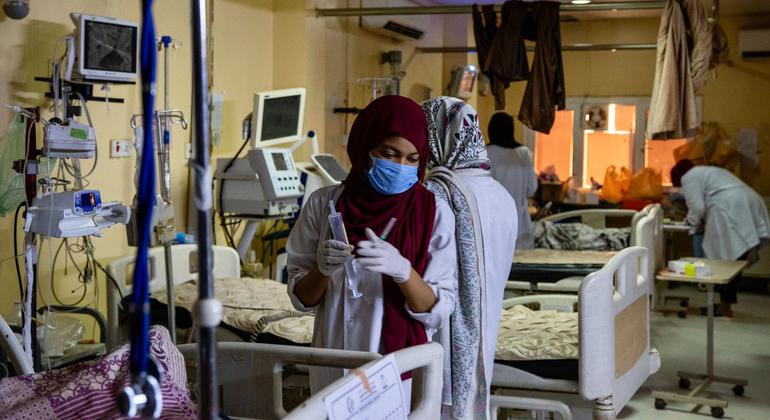Red Cross Warns of Healthcare System Collapse and Rising Sexual Violence in Sudan

Daniel O'Malley, the head of the International Committee of the Red Cross (ICRC) mission in Sudan, has issued a stark warning regarding the country's healthcare system, stating it is on the verge of collapse. He reported that between 70% and 80% of health facilities are currently out of operation, which is preventing two-thirds of the population from obtaining necessary medical care.
O'Malley's comments were made during a press conference in Port Sudan on Wednesday. He noted that some injured individuals have been forced to seek treatment in neighboring countries, as health facilities in conflict zones have sustained damage, jeopardizing lives.
The crisis is intensifying, making it particularly challenging for vulnerable groups, including women, children, and the elderly, to access healthcare. O'Malley highlighted that looting of medical facilities, threats to healthcare workers and patients, and incidents of physical violence are widespread.
This dire situation aligns with earlier statements from Sudan's Minister of Health, Haitham Mohammed, who indicated that 80% of hospitals and health facilities are non-functional due to their locations in conflict zones or due to damage.
O'Malley urged both the army and the Rapid Support Forces to comply with international humanitarian law, stressing the importance of allowing humanitarian aid to reach those in need during conflicts and ensuring the safety of humanitarian organizations in their operations.
In a related report marking the second anniversary of the ongoing conflict, the ICRC highlighted a disturbing rise in sexual violence in Sudan. The report noted that sexual violence has led to forced displacement, with many individuals fleeing their homes due to such violence, while others have been targeted while attempting to find safety.
The findings revealed a troubling pattern of dehumanization of victims. Many survivors face significant barriers to accessing essential medical and psychological support, complicating efforts to fully understand the extent of the issue.
According to the report, over 70 survivors, particularly pregnant women, have been reluctant to seek timely medical care due to fears of stigma. As their pregnancies progressed, many found themselves isolated and lacking support, sometimes far from their families. Even family members who witnessed the traumatic events have struggled to process what occurred.
The report also indicated that the ICRC received 7,700 requests for missing persons by the end of December, marking a 66% increase compared to the previous year. To help alleviate the suffering, the ICRC facilitated over 45,000 phone calls between family members within Sudan.
The ICRC concluded by reiterating the necessity of adhering to international humanitarian law and ensuring that humanitarian standards are maintained independently of political agendas. It emphasized that protecting civilians and facilitating unobstructed access to humanitarian assistance are fundamental legal obligations under international humanitarian law.
